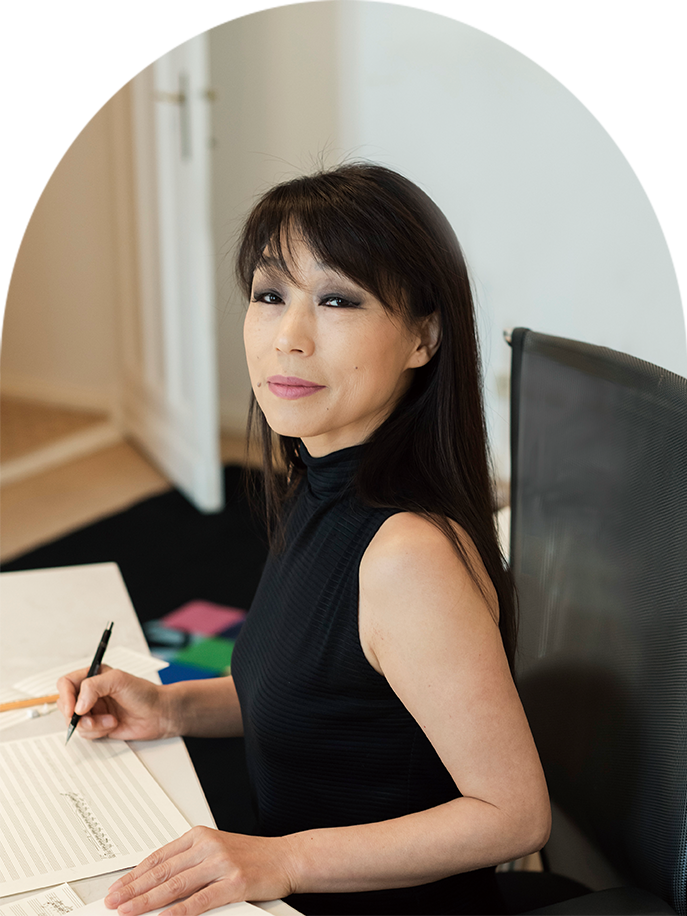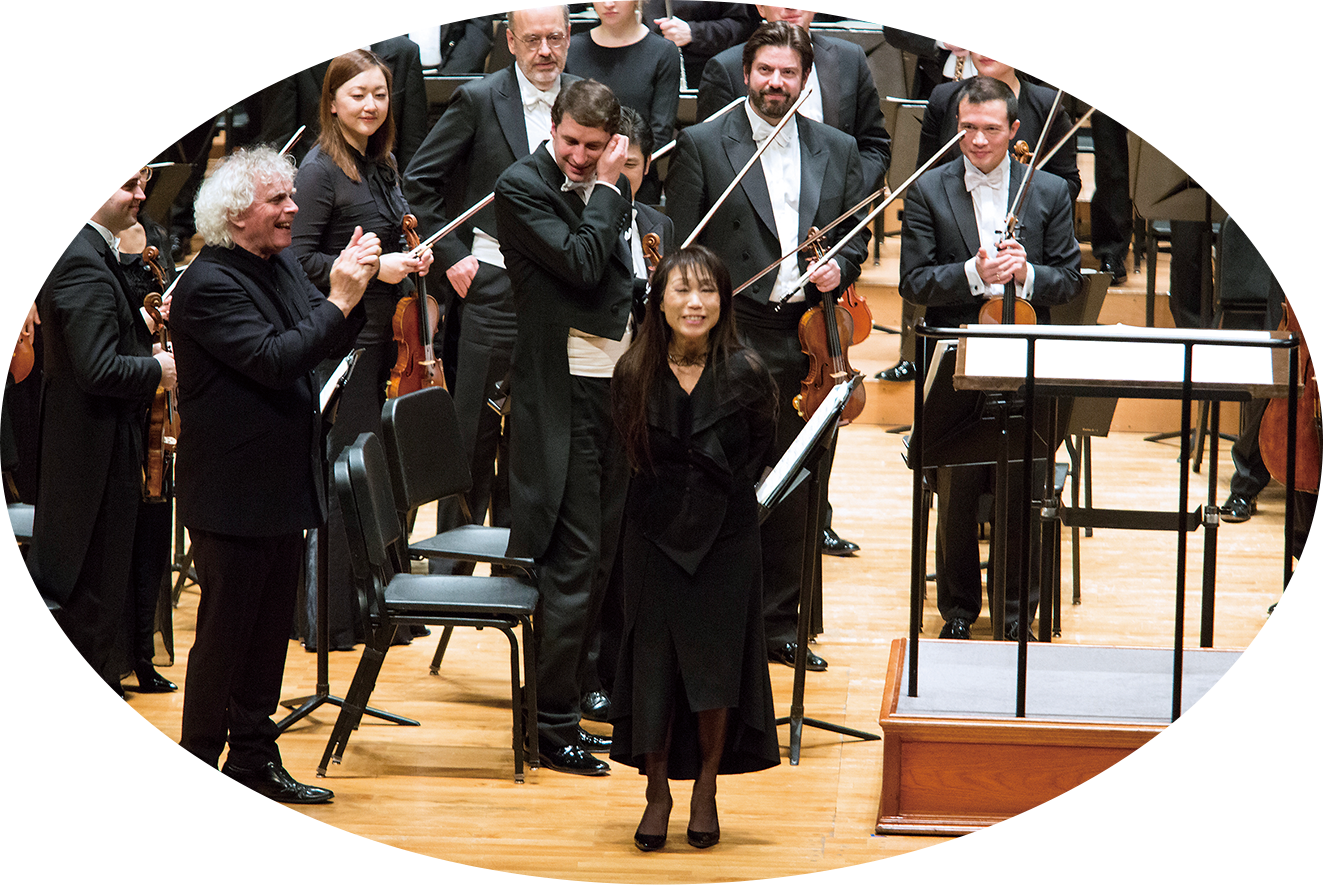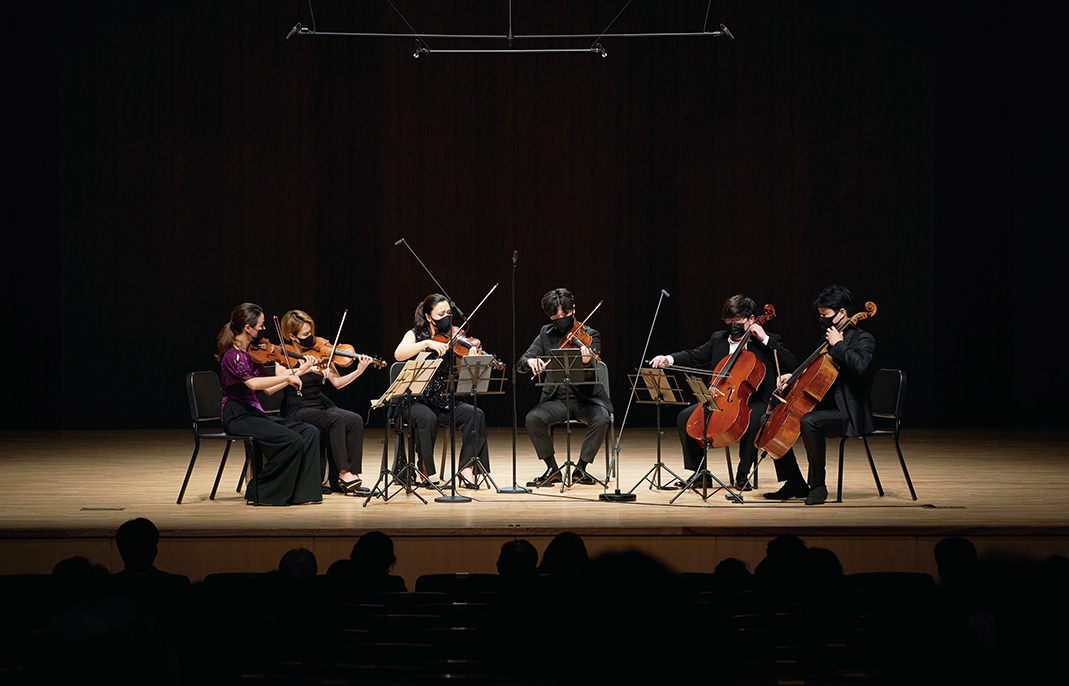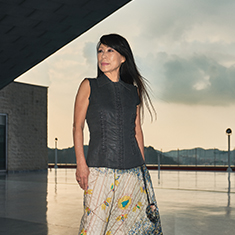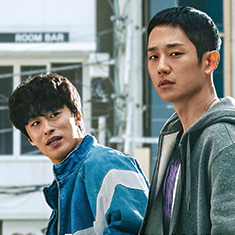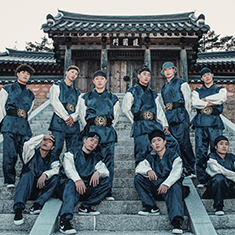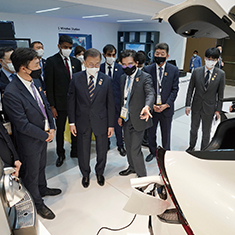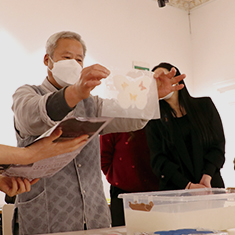No one calls a doctor a “living doctor” or a worker at a cafe a “living cafe employee.” Only composers, especially those who write classical music, have the modifier “living.” Default classical music is the work of a dead master composer. Living composers are in a position in which they have to compete with immortal masterpieces written decades or even thousands of years ago. People collectively refer to the music of living composers by the use of the sometimes polarizing term “contemporary music.”
Unsuk Chin is one of the best-selling composers alive today. Chin’s composition schedule has been full for several years. Her works are commissioned and performed by the world’s leading orchestras and festivals.
Last January, Chin’s new violin concerto, “No. 2 Scherben der Stille,” made its world premiere when it was performed by the London Symphony Orchestra led by master conductor Simon Rattle and violinist Leonidas Kavakos.
Back in 1999, Rattle selected Chin as one of the “five next-generation musicians who will lead the world’s music industry.” The two have developed a deep musical friendship.
Clearly, Chin’s music has a competitive edge that allows the performer to choose from the numerous options in front of them. Her biggest weapon is her “newness.”
Cellist Jean-Guihen Queyras said that after hearing Chin’s early work “Fantaisie Mécanique,” he felt a uniqueness that differentiated it from the many other forms of contemporary music.
“I think music has to be new,” Chin said. “New music can be implemented not only as a musical experiment, but also as a message and style. However, I am against experiments conducted for the sake of experimentation. For example, there was a time when a cow was played on stage at a certain contemporary music festival, but I felt like it was too much. If you look at avant-garde music today, it’s just a continuation of Darmstadt from the mid-20th century. It can’t really be called ‘avant-garde.’ I didn’t think it was new anymore, so I’m trying to experiment and find new things in my own way.” (Auditorium, January 2018)
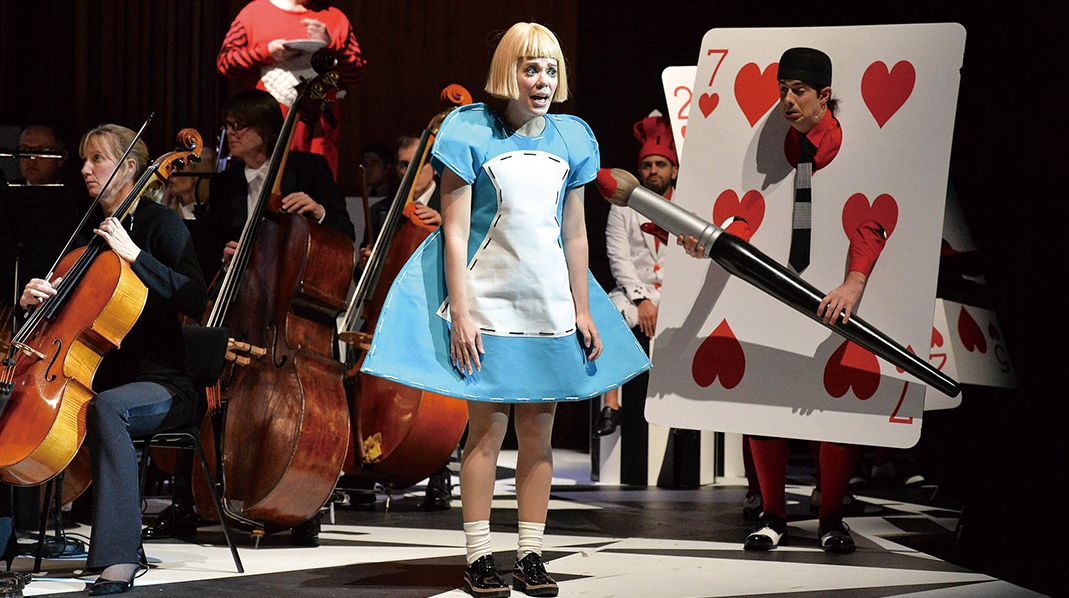
Chin has composed an opera based on ‘Alice in Wonderland.’ © Mark Allan
A Sense of Responsibility for Korean Contemporary Music
It is difficult to talk about Chin without mentioning Korean contemporary music. The same is true when talking about Korean contemporary music. Chin received her musical education in Germany, lives in Germany, and works mainly in Europe. She is often compared to composer Isang Yun (1917-1995). Isang Yun was a first-generation composer of Korean contemporary music. He left his hometown of Tongyeong and achieved success as a composer in Germany. Yun’s music harmonizes Western musical techniques with Eastern philosophical ideas. These characteristics are expressed in the orchestral piece “Réak” and the oratorio “Om Mani Padme Hum.”
There’s one more link between Isang Yun and Chin. Kang Seok-hee (1934-2020) was a disciple of Isang Yun. Kang taught at Seoul National University, which is the university Chin attended. For Chin, Yun was the teacher of her own teacher. Chin also expressed her respect for Yun, calling him “the best composer born in Asia.”
However, the styles of the two composers are quite different. To borrow the words of music critic Jin Hoe-sook, “Unsuk Chin pursues global universality in her music instead of focusing on Far Eastern music.” For example, one of Chin’s operas rich in non-musical text is based on the British fairy tale “Alice in Wonderland,” a story she read as a child, rather than a traditional Korean tale.
Jin pointed out, “Korean composers who have come after Isang Yun, including Chin, have benefited both directly and indirectly from him.” Korean composers are a minority in the world’s mainstream classical music industry, which is why they suffer from internal and external expectations to produce “Korean” works.
Thanks to the existence of Isang Yun, the next generation of Korean composers have the chance to be free from such expectations.
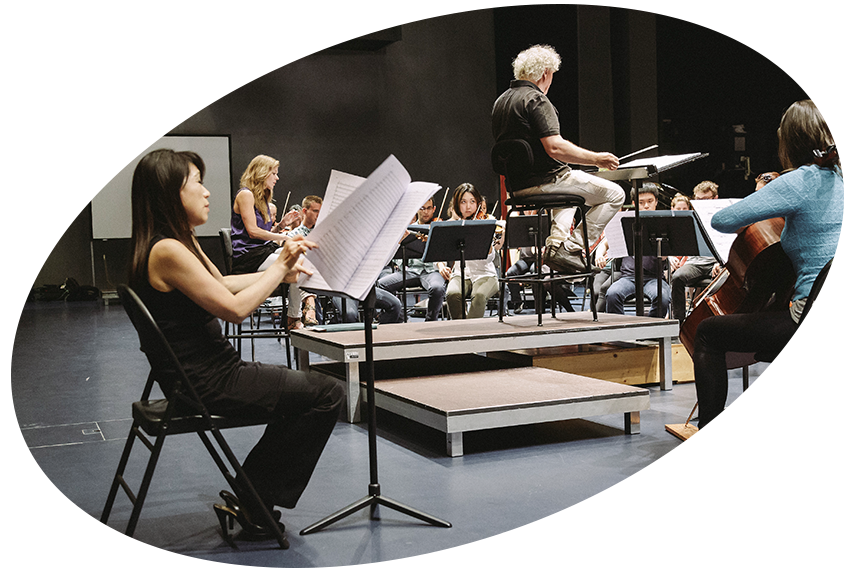
Chin takes part in the first reading of ‘Le Silence des Sirènes’ at the Lucerne Festival. © Stefan Deuber
Like Isang Yun, Chin wants to pave a new path for the next generation. She has a unique sense of responsibility in fostering the viability of Korean contemporary music, especially for the younger generation of composers. For her, making a living as a composer is not just about studying abroad and winning famous competitions. A composer must constantly receive commission requests from orchestras. Their music must be performed for an audience that wants to listen.
The Seoul Philharmonic Orchestra has been planning and conducting Unsuk Chin’s “Ars Nova” for over 10 years in order to create such an environment in the Republic of Korea. Chin has introduced her audience to a variety of contemporary music that is rarely encountered in Korea. In doing so, she has provided new composers with the opportunity to perform her work and hold their own master classes. She has created a place in which domestic and international contemporary music composers can communicate and exchange things through music.
“Ars Nova” created the opportunity for the Art Council Korea and other national and public institutions to develop several support programs for composers. However, emerging composers still regard Chin’s teachings as a stepping stone for their growth.
Composer Shin Dong-hoon received the Young Composer Award from the British Critics Association for his orchestral piece “Kafka’s Dream.” After receiving the award, he said, “After the premiere, I got compliments from Chin for the first time ever. I think I was happier to receive her praise than I was to win the award.”
Shin, Kim Taek-soo and Choi Jae- hyeok are referred to as “Unsuk Chin’s kids.” They are now presenting their own music as the next generation of composers.


